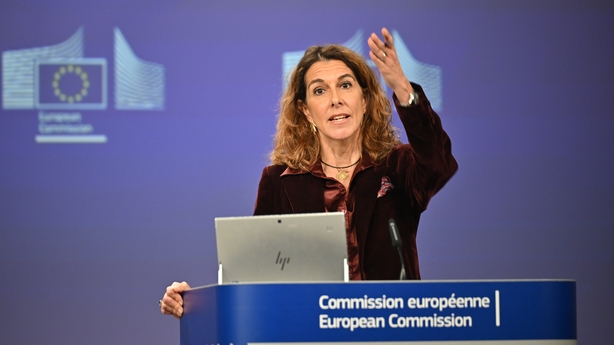The European Commission has denied that it had tried to cover up the state of health of its President Ursula von der Leyen after she was admitted to hospital with severe pneumonia.
Mrs Von der Leyen, 66, is the head of the European Union's executive branch and the bloc's most high-profile political figure.
In September, she marked the start of her second five-year term as president by travelling to Ukraine and then to South America for a major trade meeting.
On 3 January, the commission said that Ms von der Leyen was ill with "severe pneumonia" and that her appointments for the next two weeks had been cancelled.
Her agenda was cleared of meetings in Lisbon and in Poland, which has just taken over the EU’s rotating presidency, the statement added.
No details were provided about Mrs Von der Leyen's condition, or how she fell ill, but German news agency dpa later reported that she had been admitted to the hospital.
It raised questions about transparency at the European Commission.
Asked by reporters why news of the hospital admission had been withheld, commission spokesperson Paula Pinho said: "We said that the president had severe pneumonia. We said that she was dealing with severe illness" at her home in the German city of Hanover.

Ms Pinho said the media was informed that Mrs von der Leyen had cancelled her appointments earlier this month, but was taking important phone calls, including with Italian Prime Minister Giorgia Meloni, and was able to conduct commission business.
"We therefore gave you the critical information about the health status of the president, by saying what sickness she had, and how serious it was," Ms Pinho said in response to reporters' questions, without explaining why the hospital details were withheld.
"Her ability to act was never in question."
Mrs Von der Leyen spent eight days in the hospital.
Ms Pinho said the president is "recovering well", and is due to return to work in Brussels, where she has an office and an apartment, at the end of this week.
The former German defence minister usually keeps a punishing travel schedule.
She is due to attend a European Parliament session in Strasbourg in France next week and travel to the World Economic forum in Davos, Switzerland.
After coming to office in 2019, Mrs von der Leyen led the EU drive to secure Covid-19 vaccines and has been a major supporter of Ukraine in its war against Russia.
With governments weakened in France and Germany, she has sought to play a greater role in the 27-nation bloc’s affairs.

